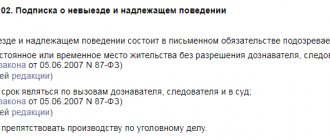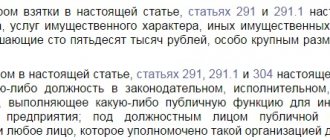Theft refers to the stealing of property belonging to another person(s) in secret. Responsibility for this offense is provided for in Article 158 of the Criminal Code of Russia. Attempted theft is an unfinished crime , which is an attempt to secretly steal someone else's property.
This offense is also regulated by Article 158 of the Criminal Code of Russia. Dear readers! To solve your specific problem, call the hotline or visit the website. It's free.
8 (800) 350-31-84
The difference between the punishment for attempted theft and theft committed
Despite the fact that both crimes fall under the same article, the preventive measures are different. This rule is regulated by Article 66 of the Russian Criminal Code on attempted crime.
In accordance with this document, when choosing a punishment, the court must rely on the following rules:
- it is necessary to take into account the circumstances due to which the crime was not committed;
- the terms of punishment and the amount of fines provided for preparation for committing a crime cannot be more than half of the maximum terms and amounts of fines for the most severe of the preventive measures provided for in the article;
- the terms of punishment and the amount of fines provided for an attempt (attempt) to commit a crime cannot be more than three-quarters of the maximum terms and amounts of fines for the most severe of the preventive measures provided for in the article.
Subjective signs
The second group of mandatory elements characterizes the criminal and his attitude to what he does and the consequences that occur as a result. This group of signs is also mandatory, since without their definition it will be impossible to identify the guilty person and bring charges against him.
When attempting to commit theft, liability is provided from the age of fourteen due to the increased danger of the type of act in question.
When determining the subject of this encroachment, it is also important to establish the following characteristics:
- the guilty subject is defined only as an individual;
- full sanity;
- age.
The absence of at least one sign will lead to the impossibility of initiating a case against a specific person.
Deviations in a person’s condition that are not related to the psyche will not act as an obstacle to initiating a case. On the contrary, if a person, say, was in a state of drug or alcohol intoxication, then this can aggravate the measure of coercion even if there is only the fact of an attempt. In addition, limited sanity is possible, which, according to the expert’s conclusion, can also exclude measures of liability.
Another important point is the subjective side. It reflects a person’s psychological attitude towards what he does and manifests itself in the form of guilt.
According to the law, it can have the following expression:
- Intent. This option is characterized by the desire to achieve a negative result or deliberately allow its occurrence. Accordingly, direct and indirect intent is established. Theft is characterized by the presence of just such guilt, since a person intentionally steals property, and he knows in advance that the item belongs to another person.
- Carelessness. Here the person does not strive for a negative result. At the same time, it can foresee it, but fail to take the necessary measures due to frivolity, or fail to foresee at all that the crime will cause damage, although the situation was conducive to this. When it comes to theft, carelessness is unacceptable.
For a specific act, namely attempted theft, only direct intent is established, since a person must be aware of his actions, direct them, evaluate the consequences and desire their occurrence.
Regardless of whether only the attempt is realized or the act is completed, the fact of establishing the selfish goals of the criminal is important. This criterion is a mandatory component of such a phenomenon as theft, a type of which is secret theft.
Also read: What is the punishment under the article if the theft is committed by a minor
Preventive measures for theft committed
The maximum sentences and fines provided for theft are as follows:
- fine – up to 80,000 rubles;
- a fine calculated from the salary or other income of the perpetrator – up to 6 months;
- correctional labor – up to 1 year;
- compulsory work – up to 360 hours;
- restriction of freedom – up to 2 years;
- arrest – up to 4 months;
- forced labor – up to 2 years;
- imprisonment – up to 2 years.
If the theft is committed by a group of persons through penetration (burglary) into storage facilities or other non-residential premises that are intended for storing property; from pockets, bags and other places where valuables are stored on the victim; and also in cases where the damage amounts to a significant amount, the following preventive measures are provided:
- fine – up to 200,000 rubles;
- a fine calculated from the salary or other income of the perpetrator – up to 18 months;
- compulsory work – up to 480 hours;
- correctional labor – up to 2 years;
- forced labor – up to 5 years. They may be accompanied by restriction of freedom - up to 1 year or without it;
- imprisonment – up to 5 years. It may be accompanied by restriction of freedom - up to 1 year or without it.
If the theft is committed by entering a residential premises; from petroleum products, oil or gas pipelines; and also if the damage amounts to major damage, the following preventive measures are provided:
- fine – up to 500,000 rubles;
- a fine calculated from the salary or other income of the perpetrator – from 1 to 3 years;
- forced labor – up to 5 years. They may be accompanied by restriction of freedom - up to 1.5 years or without it;
- imprisonment – up to 6 years. It may be accompanied by a fine of up to 80,000 rubles. or a fine calculated from the salary or other income of the perpetrator - up to 6 months, as well as restriction of freedom - up to 1.5 years or without them.
If the theft is committed by an organized group or the amount of damage caused is equated to an especially large amount, then the following punishment is provided:
- imprisonment – up to 10 years. It may be accompanied by a fine of up to RUB 1,000,000. or a fine calculated from the salary or other income of the perpetrator - up to 5 years and restriction of freedom - up to 2 years or without them.
Decoding concepts
Attempted theft is regarded under Article 158 of the Criminal Code of Russia only if the following signs of a crime are present:
- selfish purpose, i.e. the crime must have the intent to obtain benefits from the theft of property;
- gratuitous in nature, i.e. for the secretly seized property its cost will not be paid, no other property of equal value will be provided for it, or the cost will not be fully covered;
- the presence of material damage, i.e., if a crime were committed, the owner of the property would suffer damage. The amount of damage affects the measure of restraint. It is calculated from the value of the property at the time of the theft attempt or based on the conclusion of an expert commission.
The concept of theft, and, accordingly, attempted theft, includes only those acts that are aimed at secretly confiscating property that does not belong to the criminal, as well as property to which he does not have an alleged right.
The presumptive right to own property refers to the debt the victim owes to the offender. Accordingly, secret theft or its attempt is carried out to cover the debt. In this case, the crime will be regarded as arbitrariness and will fall under Article 330 of the Criminal Code of Russia.
You should know:
- the seizure of property is usually understood as the actual transfer of property from the owner to the criminal or other persons in whose favor the crime is committed;
- preparation of theft is considered to be thinking over the details of committing a crime, drawing up plans, searching for accomplices, preparing related tools and other signs of an offense that provide conditions for the possibility of committing a crime;
- attempted theft is considered to be intentional actions aimed at committing an illegal act that is not completed for any reason dependent or independent of the offender.
If the offender can (has the potential) to complete the crime, but does not complete it, then the court may qualify this as a refusal to commit the crime.
In this case, the following factors are taken into account when making a decision:
- voluntary refusal to commit a crime;
- no attempts to commit this illegal act a second time;
- refusal of a crime due to its illegality, i.e. a crime is not committed due to the fact that criminal liability is provided for it. This rule is regulated by Article 31 of the Criminal Code of Russia.
What it is
Any socially dangerous act requires the presence of several stages of its implementation.
Theft is the secret theft of someone else's property, does not involve violence or the use of weapons, but allows the participation of a group of people and the use of means to enter the premises.
The result of such an act should always be damage: significant, large or especially large. Petty theft does not provide for criminal liability if it was committed for the first time.
Such a concept as an attempt represents the stage of implementation of an attack. Its commission occurs after preparatory actions. To attempt ─ means to begin to implement the objective side of the crime, that is, to make an attempt to steal someone else's property.
An attempt to secretly steal property under Article 30 must meet certain criteria:
- actual seizure of property;
- stopping criminal acts for reasons beyond the control of the guilty person;
- the absence of the fact of completion of actions, that is, the possibility of disposing of property for personal gain.
If a person himself refused to further commit criminal acts and surrendered, this can be regarded as a voluntary refusal, but provided that there is no serious damage.
Separately, it should be said about such a type of attempt to commit a crime as a bad attempt to commit a crime. It involves the use of means that are unsuitable for the actions in question, or an attack on an unsuitable object. At the same time, this option does not exclude liability, since the person had the intent to commit such an offense, as evidenced by judicial practice in the Resolutions of the Plenum of the Armed Forces of the Russian Federation.
Amount of damage
The minimum amount of damage for theft and attempted theft is recognized to be an amount equal to 1 minimum wage as of the beginning of 2006, namely 1,100 rubles.
If the amount is less than the minimum, the offense is considered not criminal, but administrative. It is controlled by Article 7.21 of the Code of Administrative Offenses of Russia.
In punitive measures there are various concepts of damage, on which the choice of liability depends. These include:
- significant damage - from 5,000 rubles;
- major damage – from RUB 250,000;
- especially large damage – from RUB 1,000,000.
Punishment and its types
Paragraph 30 of the Criminal Code states that preparation for serious and especially serious criminal acts is punishable.
Moreover, the incompleteness of actions does not affect the application of the relevant article. Therefore, in order to understand the penalties for preparing for theft, it is necessary to refer to paragraph 158 of the Criminal Code “Theft”. Download for viewing and printing: Article 30 of the Criminal Code of the Russian Federation of June 13, 1996 N63-FZ
Article 31 of the Criminal Code of the Russian Federation dated June 13, 1996 N63-FZ
Article 66 of the Criminal Code of the Russian Federation dated June 13, 1996 N63-FZ
Article 158 of the Criminal Code of the Russian Federation dated June 13, 1996 N 63-FZ
This article provides the parameters of grand theft. They are:
- large - up to 250 thousand rubles;
- especially large - from 1 million rubles.
Thus, punishment is awarded as for a completed criminal act, despite the lack of benefit from it. Moreover, in court the provision of paragraph 66 of the Criminal Code is applied. This limits the maximum period of imprisonment to ¾ of what is established in the relevant article.
Hint: the maximum punishment under paragraph 158 reaches ten years in prison with a fine of up to a million rubles.
In addition, the following aggravating circumstances are taken into account in the trial:
- group conspiracy;
- commission of a crime by a person with an outstanding criminal record;
- especially large size;
- causing significant damage;
- committing other criminal acts (breaking, entering, etc.).
Attention: the amount of damage is not indicated in numerical values.
It is assessed according to the income level of the victim. The court is also obliged to evaluate the circumstances that prevented the theft from being brought to its logical conclusion. They are analyzed from the point of view of social danger. For example, two thieves tried to steal DVRs from cars:
- one was unable to perform the act due to the alarm going off;
- the second was stopped by ignorance of the technical details of connecting the device to the vehicle's power supply system.
The first reason is much more dangerous than the second. Consequently, the thief will receive a greater punishment under equal conditions.
Arbitrage practice
Court decisions when considering cases of unfinished thefts are made taking into account many factors. The main ones are:
- the amount of potential damage to the victim;
- the reason for the incompleteness of the crime;
- the presence of preparatory measures for committing a crime;
- purpose of attempted theft, possession, transfer to third parties, permanent use or temporary use.
Let's consider certain types of thefts and the main decisions that are made on such crimes.
Attempted car theft
Since the theft of a car is mainly associated with major damage (the cost of cars is more than 250,000 rubles), the preventive measure is mainly chosen according to paragraph 3 of Article 158 of the Criminal Code of Russia. If the cost of the car exceeds 1,000,000 rubles, then paragraph 4 of Article 158 of the Criminal Code of Russia comes into force.
If the attempt is made without the purpose of theft, then liability is provided for under Article 166 of the Criminal Code of Russia. Such cases may result in actual imprisonment.
Attempted shoplifting
If attempted shoplifting is committed by a minor, most cases are handled on the spot by store security guards. In this case, police officers are involved and a warning is issued. Cases of attempted theft that fall under Article 7.21 of the Code of Administrative Offenses of Russia are resolved in the same way.
If the attempted theft is committed by adults, then the cases are considered on a general basis. The only condition is mandatory merchandising examination, which will determine the potential value of the goods. It is the decision of the experts that determines under which paragraph of Article 158 of the Criminal Code of Russia the case will be considered. Depending on this, a preventive measure will be chosen. Basically, the cost of goods does not exceed the amount of 250,000 rubles, and therefore in such cases there is no real imprisonment.
Attempted cell phone theft
Basically, the cost of mobile phones varies from 5,000 to 15,000 rubles, and, accordingly, they are considered under paragraph 2 of article 158 of the Russian Criminal Code.
The cost of potential damage is calculated by judicial or independent experts. For the most part, such cases do not threaten actual imprisonment.






